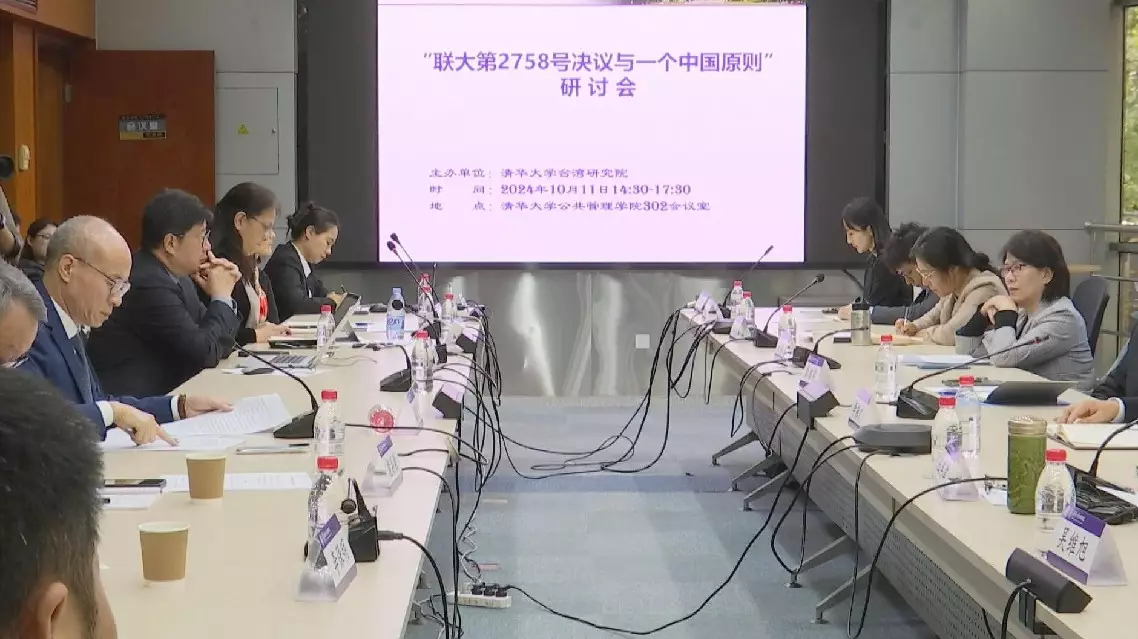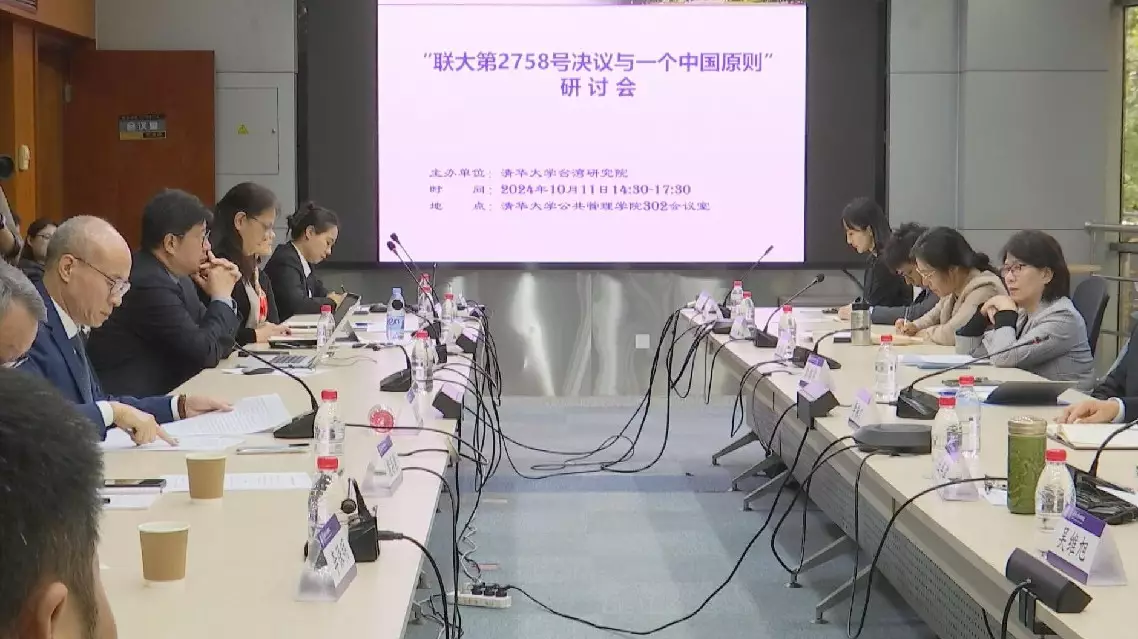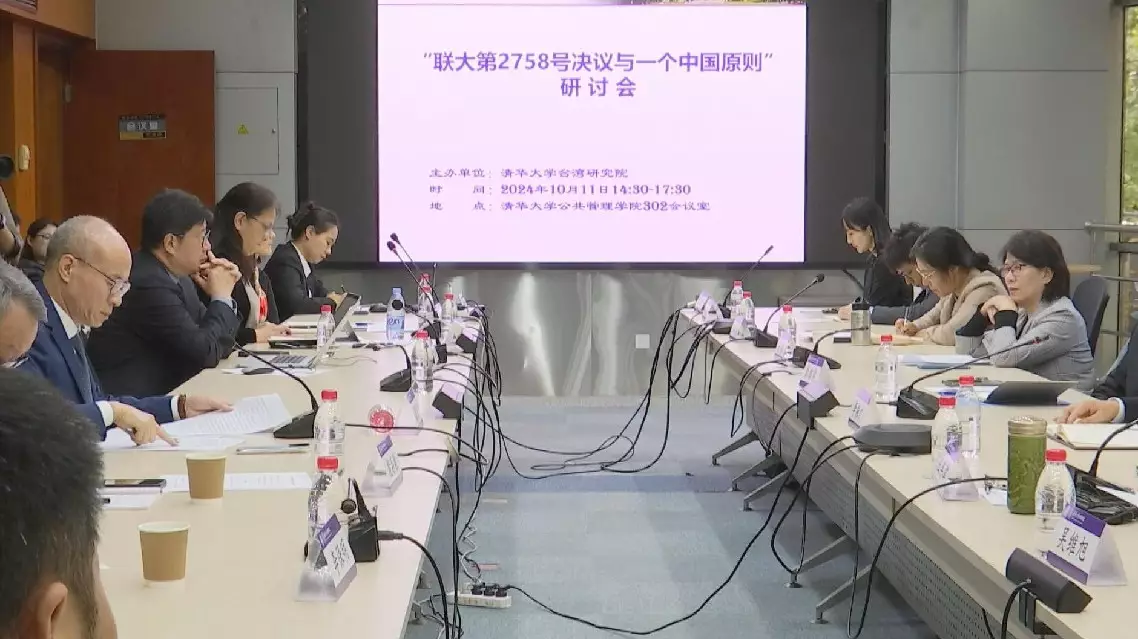Scholars and experts on the Taiwan issue gathered in Beijing on Friday to reaffirm the importance of the one-China principle and condemn Taiwan leader Lai Ching-te's advocacy of the "two-state" fallacy in the speech one day earlier.
At a seminar on UN General Assembly (UNGA) Resolution 2758 and the one-China principle, hosted by the Institute of Taiwan Studies at Tsinghua University in Beijing, experts first elaborated on the one-China principle, based on the historical and legal context that Taiwan has been part of China since ancient times.
They refuted Lai's statement that "the Republic of China and the People's Republic of China are not subordinate to each other" and dismissed the claims of so-called "sovereignty."
"Both the mainland's constitution and the relevant regulations in the Taiwan region stipulate that both sides of the Taiwan Strait belong to one China. Therefore, Lai Ching-te blatantly claiming that the two sides are 'not subordinate to each other' is illegal in itself. It not only violates mainland laws but also goes against the region's regulations," said Li Zhenguang, dean of the Institute of Taiwan Studies at Beijing Union University.
"When the People's Republic of China was founded in 1949, it replaced the then Republic of China as the sole legal government representing the whole of China; in 1971, the UNGA Resolution 2758 resolved the issue of China's international representation. 'Taiwan' is just the name of a region within the territory now represented by the People's Republic of China, just like Guangdong and Fujian," said Wu Yongping, director of the Institute of Taiwan Studies at Tsinghua University.
Peng Weixue, Deputy Director of the Institute of Taiwan Studies at the Chinese Academy of Social Sciences, said that Lai's claims of "peace," "democracy," and "goodwill" in the speech are deceptive, aimed at smearing the mainland and promoting the so-called "two-state" rhetoric by asserting that the two sides are "not subordinate to each other," which will further exacerbate tensions across the Taiwan Strait.
"No matter how many words of 'goodwill', 'peace' and 'maintaining the status quo across the Taiwan Strait' Lai Ching-te talks about, as long as he remains headstrong on 'Taiwan independence' in terms of the position, guiding principle, actions, and policies, the tension in the Taiwan Strait will continue to spiral up in the future," he said.
"Judging from his words and actual actions during this period, he is really a die-hard 'Taiwan independence' advocate. I consider him a 'fire-raiser of war'," said Zheng Jian, deputy director of the studies committee of the China Council for the Promotion of Peaceful National Reunification.

Mainland experts slam Taiwan leader's fallacy

Mainland experts slam Taiwan leader's fallacy

Mainland experts slam Taiwan leader's fallacy









